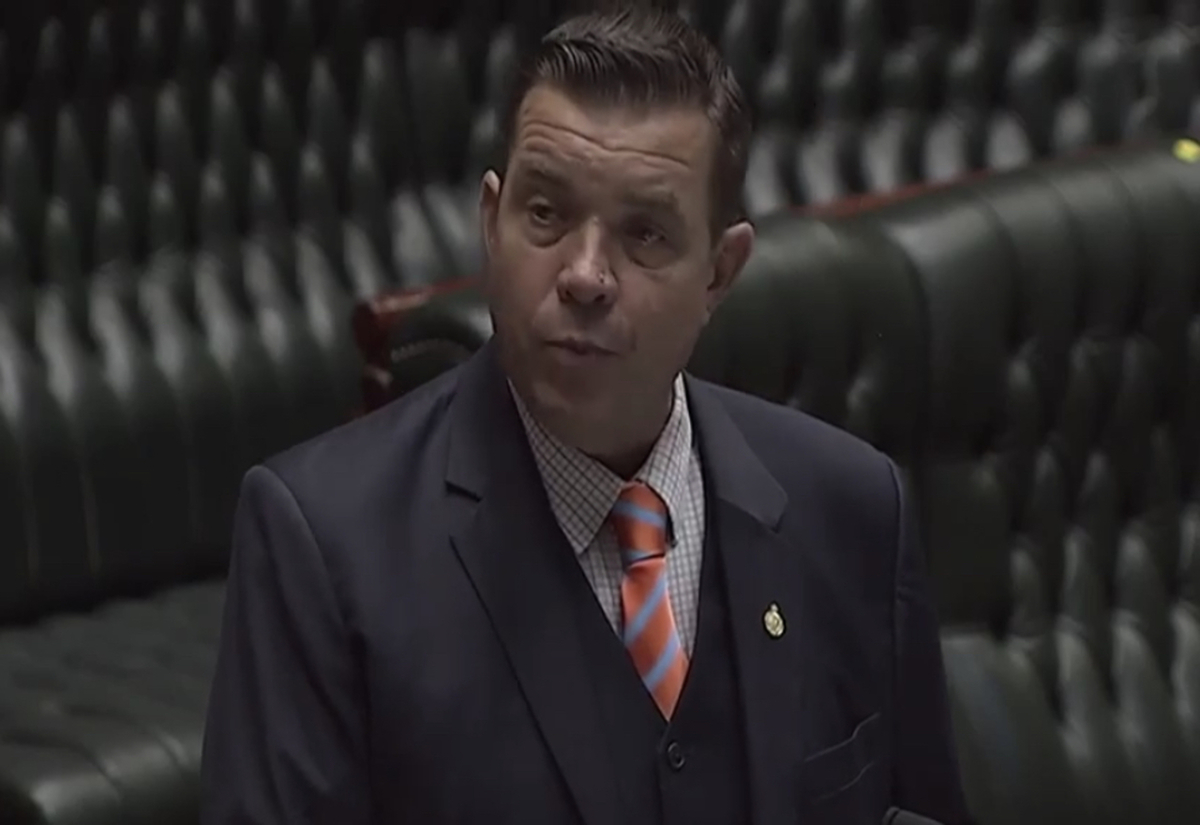Homework handed to government to bring regional NSW to its ‘golden era’
Laura Williams
24 February 2022, 6:11 AM
 Roy Butler brought a host of challenges for regional NSW to the government that need to be overcome before regional NSW hits its stride.
Roy Butler brought a host of challenges for regional NSW to the government that need to be overcome before regional NSW hits its stride. The ‘Golden Era’ for regional NSW is in our sights, according to Member for Barwon Roy Butler, who set the Government a long list of homework tasks to tick off before we can reach out and grab it.
In Parliament this week, Mr Butler reported that following the devastation of recent years - including drought, mouse plagues, fire and floods - regional NSW is in a primed position to rebuild perpetually declining populations, and fill long-available job vacancies.
“It was hard to know if and when we would turn a corner and see some good news…I think we are there…agriculture is hitting its straps, teleworking has opened up potential for many to make a treechange, money has started flowing into projects in regional NSW which is beginning to address decades of neglect,” Mr Butler said.
Still, he told Parliament, there is foundational work to be done before people make the move into rural areas, with a priority on making local towns the most liveable they can be to attract new families.
“If we really want to see regional NSW shine as bright as it can and be that good place to live, there are still areas that require homework on the government's part,” he said.
Decent health services, sustained health workers, more effective connectivity all made the list of things to improve.
“We don’t expect a neurosurgeon on every corner, but at the very least things like setting bones or getting stitches shouldn’t mean hours of travel past the local health service,” Mr Butler said.
Families won’t bring their kids west unless we can offer quality education for young people. That won’t happen…without teachers in our schools,” he said.
Mr Butler has previously proposed the abolition of payroll taxes in regional areas of the state as an incentive to attract businesses to the area.
“Yes, it would create an uneven playing field, but that’s what we have been facing for a long time, only in the past it was skewed against regional areas,” he said.
When he made the same proposal in 2020, he suggested that the payroll tax in regional NSW would cost the government $1 billion of the $87 billion made in payroll taxes across the state.
Another part of the ‘homework’ included supporting local level media outlets such as newspapers and radio stations by allocating government advertising funds to smaller outlets.
“Regional papers, radio and TV shouldn’t be expected to run government ads for free. Send some of the $1.4 billion you mostly give to metro outlets out west,” Mr Butler said.
He alluded in his speech that this would become a feature of his agenda throughout the year.
Connectivity was also a feature of the demands, as a way of improving education, business, banking, particularly as the government requires more and more engagement through online forms.
“That doesn’t even touch the safety aspect of needing to be able to call for help when someone is hurt or seriously ill. This needs to be a state and federal government priority,” he said.
Recent reporting has found that trends are beginning to turn towards regional NSW, including the agricultural boom, job opportunities, and more flexible working options.
Numbers from the latest Regional Movers Index, however, found that the increase in people moving from city to country that occurred throughout the past two years has slowed, with a 10 per cent decline in the December 2021 quarter.
Part of the reasoning, according to the report, was a lack of suitable housing, something that failed to make the homework list but that has remained at the top of council discussions throughout the Western Plains.
Mr Butler said that it will be up to the locals of regional areas to judge how the government does on their ‘homework’, rewarding them with an ‘A’ or an ‘F’.
To view Mr Butler's full speech in parliament this week, click here.




